Team
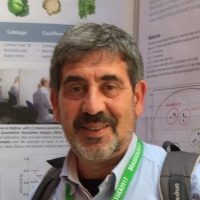 Prof. Ferdinando BrancaUniversity of Catania
Prof. Ferdinando BrancaUniversity of Catania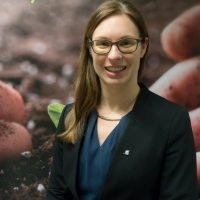 Dr Amelie DetterbeckEuroseeds
Dr Amelie DetterbeckEuroseeds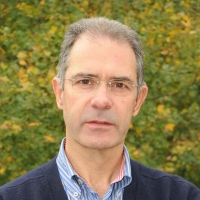 Prof. Eduardo RosaUniversity of Trás-os-Montes and Alto Douro
Prof. Eduardo RosaUniversity of Trás-os-Montes and Alto Douro Assoc. Prof. Jaroslava OvesnáCrop Research Institute
Assoc. Prof. Jaroslava OvesnáCrop Research Institute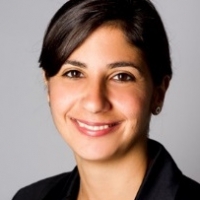 Dr Joelle Herforth-RahméResearch Institute of Organic Agriculture
Dr Joelle Herforth-RahméResearch Institute of Organic Agriculture Prof. Roberto PapaPolytechnic University of Marche
Prof. Roberto PapaPolytechnic University of Marche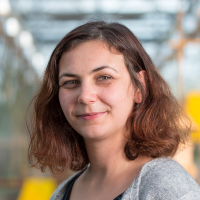 Dr Céline HamonVegenov
Dr Céline HamonVegenov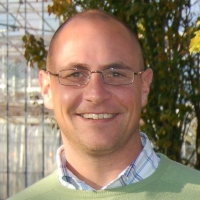 Dr Peter Glen WalleyUniversity of Liverpool
Dr Peter Glen WalleyUniversity of Liverpool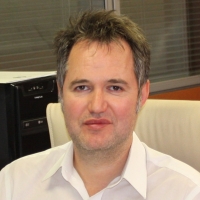 Prof. Jaime ProhensUniversitat Politècnica de València
Prof. Jaime ProhensUniversitat Politècnica de València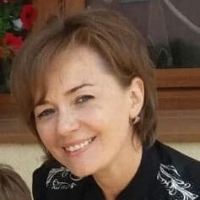 Dr Creola BrezeanuVegetable Research and Development Station Bacau
Dr Creola BrezeanuVegetable Research and Development Station Bacau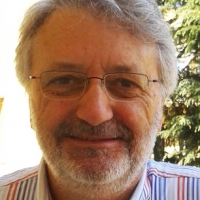 Dr Teodoro CardiConsiglio per la ricerca in agricoltura e l’analisi dell’economia agraria
Dr Teodoro CardiConsiglio per la ricerca in agricoltura e l’analisi dell’economia agraria Dr Pasquale TripodiConsiglio per la ricerca in agricoltura e l’analisi dell’economia agraria
Dr Pasquale TripodiConsiglio per la ricerca in agricoltura e l’analisi dell’economia agraria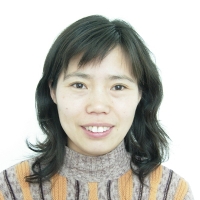 Dr Yunhua DingBeijing Vegetable Research Center
Dr Yunhua DingBeijing Vegetable Research Center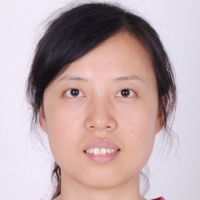 Dr Xiaoguang ShengZhejiang Academy of Agricultural Sciences
Dr Xiaoguang ShengZhejiang Academy of Agricultural Sciences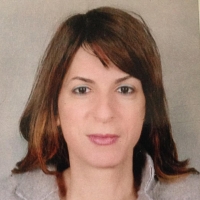 Assoc. Prof. Sonia MarghaliUniversity of Tunis El Manar
Assoc. Prof. Sonia MarghaliUniversity of Tunis El Manar Dr Juan José FerreiraRegional Agrifood Research and Development Service
Dr Juan José FerreiraRegional Agrifood Research and Development Service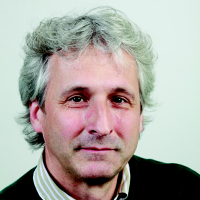 Dr Béla BarthaProSpecieRara
Dr Béla BarthaProSpecieRara Vincent Lefebvre du PreyITAKA SRL
Vincent Lefebvre du PreyITAKA SRL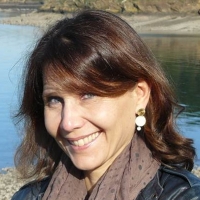 Dr Valérie GeffroyNational Research Institute for Agriculture, Food and Environment
Dr Valérie GeffroyNational Research Institute for Agriculture, Food and Environment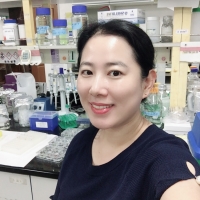 Dr So Young YiChungnam National University
Dr So Young YiChungnam National University Guillaume RostollTerre d’Essais
Guillaume RostollTerre d’Essais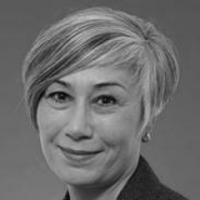 Christa BrettarEuropean Research and Project Office GmbH
Christa BrettarEuropean Research and Project Office GmbH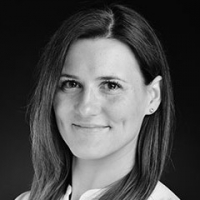 Dr Sonja BergnerEuropean Research and Project Office GmbH
Dr Sonja BergnerEuropean Research and Project Office GmbH
Why do we need BRESOV?
The increasing world population and the growing demand for a more sustainable agriculture in a climate and environmental change scenario will be the challenge of the next decades. Against this backdrop, BRESOV intends to support organic production by pre-breeding and breeding activities in order to increase the availability of organic seeds and varieties for organic vegetable production. BRESOV involves a consortium of partners from different countries in Europe, Africa and Asia and brings together researchers, private breeders, seed companies, farmers and interested groups from civil society organisations along the whole agronomic value chain. The research will take advantage from various agro-climatic zones involved and from the multi-actor approach which will be developed by the cooperation among partners with different skills. BRESOV aims to implement the resilience, efficiency and sustainability of organic vegetable production not only by exploitation the wide agrobiodiversity, which is until now not well utilised for broccoli, snap beans and tomato, but also to adapt them to the innovative organic protocols supported by the use of bio-stimulants and natural bioactive compounds.
View institution profileWhy do we need BRESOV?
Euroseeds has been actively following discussions at EU level on the future of the organic sector, and we felt it was important to also be involved in a project which may have significant impact on future EU policies for the organic sector. Furthermore, many Euroseeds members are active in the organic sector, so it is important for Euroseeds to participate in such a project which may yield results which are interesting for its members. We also see BRESOV as an exciting opportunity to further develop our network.
View institution profileWhy do we need BRESOV?
BRESOV is an innovative project which will give the opportunity, by gathering high recognised expertise, to bring new knowledge about the exploitation of minor used plant genetic reources for a climate-resilient organic farming system.
View institution profileWhy do we need BRESOV?
BRESOV was formed as a comprehensive consortium that brings together scientific institutions and businesses in the field of vegetable organic production and connects personals of different growing areas with a distinct history of production systems. I consider important that the project will make it possible to use information and experience from different regions at all levels to obtain a significant amount of unique scientific knowledge that will be harnessed by seed-producers, breeders and farmers all over Europe. Thanks to appropriate communication and dissemination, awareness will raise on the importance of R&D for the agricultural sector. On top of that, networking opportunities will increase knowledge applicable in all EU member states including my country.
View institution profileWhy do we need BRESOV?
In Switzerland, organic vegetables hold the second place for the largest share of the total market. With the continuous growth of the organic agricultural lands and the organic market, it is important to enlarge the offer of organic varieties with a better performance (resistance/tolerance and productivity) which also meet the market’s demand. BRESOV spreads from the research of interesting traits in genebanks to the growing of alternative varieties on-farm on three important vegetable crops. The research is spread within Europe and beyond, which means a diversity of regional conditions, of needs and agricultural practices that will be investigated and a broad outreach to the agricultural stakeholders and consumers.
View institution profileWhy do we need BRESOV?
Agriculture has to massively evolve in the near future, due to several factors, including: significant world population increase and need for food security; production of high quality food for human health and well-being; need to adapt crops to marked variations in climate; and imperative to protect and improve the environment. To face these challenges, genetics will have a crucial role, to complement and enhance the plant breeding and promote the sustainable use of crop agrobiodiversity in the farming systems.
The characterisation, development and use of the genomic resources of crops species is of great interest for geneticists and breeders. Indeed, discovering genes and genetic mechanisms that contribute to phenotypic changes can influence breeding strategies, inasmuch as the exploration and use of this natural genetic variation will expand the genetic base of the current elite germplasm. The BRESOV project perfectly matches these issues and will provide new materials and knowledge to develop horticultural organic farming systems with innovative genetic material of common bean, tomato and broccoli adapted to organic agroecosystems and tolerant or resistant to both abiotic and biotic factors. The project will contribute to face the numerous challenges of sustainable agriculture, from climate change, food security, agrobiodiversity, and quality of products for human health and well-being.
View institution profileWhy do we need BRESOV?
We know that climate change could have a serious impact on agriculture in years to come and growers will need cropped varieties more tolerant to biotic and abiotic stresses (new pathogens, drought, ...). Moreover, organic growers have many constraints like non-use of synthetic pesticides. Thus, this will be more and more difficult for them to find varieties adapted to this agricultural model. That is why we need BRESOV to develop new tomato, snap bean and broccoli varieties that can help organic growers to face these challenges in the next future.
View institution profileWhy do we need BRESOV?
The BRESOV project will provide a firm base for the organic breeding sector. The use of state-of-the-art high throughput genotyping methodologies to genetically characterise diverse germplasm will greatly enhance the capture of beneficial genetic variation for organic crop improvement. By using a multi-actor approach, with the inclusion of public and private researchers, farmer associations and seed companies, new innovative approaches can be translated directly to the organic sector. This work will interlink and join up other EU projects such as LIVESEED and ECOBREED; together we hope to build a stronger, more competitive, sustainable future for all organic growers.
View institution profileWhy do we need BRESOV?
There is an urgent need of varieties well adapted to organic cultivation in Europe. Up to now most plant materials used correspond to standard commercial varieties selected for high input conventional agriculture. In addition, there is a lack of high quality organic seed. The project will address these issues and as a result new varieties, developed using the treasure trove of local genetic resources and their wild ancestors, with dramatic improvements in adaptation to organic conditions will be developed for the three strategic vegetable crops (beans, brassicas, and tomato) included in the project.
View institution profileWhy do we need BRESOV?
Accelerating growth has led more and more farmers, processors and consumers to demand organic certified seeds and vegetables products – BRESOV is one of the most valuable key, able to solve the market demand. The project is a generous set of activities with a unitary approach to the problem and includes identifying the features relevant to the ecological system to create a new generation of distinct vegetal resources specific to: quality, nutritional profile, adaptability to adverse environmental conditions, suitability for specific cropping conditions and biological agricultural inputs for pathogen management and fertilisation.
Personally, I strongly consider that we (society, academia, farmers, processors, etc.) all need BRESOV for benefits of its development, results, implementation and impact, and it can act as a model to be applied to other crops, having same purpose to create viable solution for food security and clean environment.
BRESOV is unity in diversity. Like our PGR in BRESOV we are very different (age, background, expertise) but this is what give us power, give us the possibility to interact and to have as many ideas, results and approaches as different as we are.
For me, BRESOV is an immense joy and honor to work and learn in a diverse EU and extended consortium. BRESOV is a challenge to give our best, to work in a very organised frame, to perform at highest level in all activities. We must constantly endeavor if we are to succeed.
Personally, I consider BRESOV as a bridge to the future, a chance to change our view in relation to the nature, which needs, ask and deserve a better approach. BRESOV is the right place to practice what we have learnt, and to use our expertise to provide a strong impact for the future. BRESOV is a platform of continuous learning, which brings together different minds, ideas, plans, expertise, characters but aimed to work in same direction.
- Bridge to the future
- Right place to work and to learn
- Endeavor to succeed
- Solution for safety food and clean environment
- Organized medium of work (work plan, activities, grant agreement)
- Value of diversity
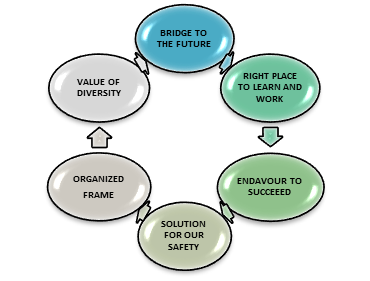
Why do we need BRESOV?
One of the most important problems in organic farming is the availability of cultivars adapted to this cultivation method as a consequence of scarce genetic improvement programs dedicated to organic. BRESOV will help in developing vegetable material suitable for organic farming that can cope with the climate changing. Furthermore, BRESOV will explore through advanced genomic approaches the genetic diversity of tomato, bean and brassica to identify and improve important resilience traits associated to sustainable agricultural system.
View institution profileWhy do we need BRESOV?
One of the most important problems in organic farming is the availability of cultivars adapted to this cultivation method as a consequence of scarce genetic improvement programs dedicated to organic. BRESOV will help in developing vegetable material suitable for organic farming that can cope with the climate changing. Furthermore, BRESOV will explore through advanced genomic approaches the genetic diversity of tomato, bean and brassica to identify and improve important resilience traits associated to sustainable agricultural system.
View institution profileWhy do we need BRESOV?
Food safety is now a serious threat to human's health. Soil contamination, water pollution, the use of chemical fertilizers and spraying of pesticides will contaminate the vegetables produced, thus affecting human health. To keep human health and to ensure a sustainable agricultural development, it is necessary to further develop organic agriculture. Therefore, BRESOV is very important and we need BRESOV.
View institution profileWhy do we need BRESOV?
The BRESOV implementation results will provide us with healthy, delicious and safe vegetables. On the other hand, this project will increase the exchange and understanding of Chinese and European researchers and jointly promote the development of the organic vegetable industry.
View institution profileWhy do we need BRESOV?
BRESOV involves an important consortium active in various disciplines connecting research institutes, breeding companies and food processors from diverse geographical/climatic contexts in Europe and non-EU countries. These structures could provide together an interesting scientific knowledge that will be harnessed by seed-producers, breeders and farmers all over the world (and especially in my county).
BRESOV constitutes an appropriate networking including research institutes and breeding companies enhanced by the active involvement of farmers and advisory services.
View institution profileWhy do we need BRESOV?
BRESOV offers the opportunity to explore the European diversity of snap beans and to identify the best genotypes for organic production. It also aims to identify important genes or QTLs in the adaptation to organic production useful in plant breeding. BRESOV will also share experience and knowledge with other European researchers.
View institution profileWhy do we need BRESOV?
Organic agriculture needs varieties well adapted to organic agriculture condition. Organic agriculture needs more diversity of varieties. We need more varieties that are better adapted to different user groups (besides farmers producing for the main market we need new, specialised and different varieties for gardeners, direct marketers, specialized gastronomy, etc.). For that we need more knowledge about the characteristics of the pgr stored under ex situ and on farm conditions. For ProSpecieRara the market is one possibility besides others to safeguard diversity of pgr.
View institution profileWhy do we need BRESOV?
BRESOV aims at a key factor influencing organic farming expansion: the availability of quality organic seeds. Organic farming will be viable in Europe on a large scale if we can ensure full traceability.
View institution profileWhy do we need BRESOV?
Organic farming is undoubtedly an important component of our future agriculture. Consequently, it is important to develop varieties and selection strategies adapted to organic farming conditions. BRESOV fills this knowledge gap by gathering scientists that are experts in various areas of plant science on important crop species for human consumption (common bean, tomato, brassica).
View institution profileWhy do we need BRESOV?
All crucifer crops are susceptible to black rot, including cabbage, kale and cauliflower. The sustainable strategy to manage black rot is to develop resistant varieties using identified resistance sources. However the progress of breeding for resistant varieties (F1) has been limited in the development phenotyping of resistant plants and unacceptable co-segregating attributes. Breeders are therefore still seeking resistance varieties with good quality and yield attributes. Therefore, the BRESOV brassica core collection is a very attractive research material for researchers looking for new sources of black rot resistance. In addition, BRESOV's working programme allows researchers in basic science and researchers in crop breeding to collaborate in harmonious ways.
View institution profile